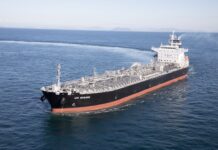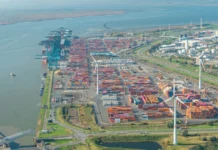
International Maritime Organization (IMO) secretary general Kitack Lim opened today’s Marine Environment Protection Committee (MEPC) 75 by highlighting the importance of moving the greenhouse gas (GHG) debate on in spite of the slimmed down agenda for the meeting.
MEPC 75 will take place online due to the pandemic and as a result of this shortened meeting, at only three hours deliberation per day, the pressure to debate the critical issues around GHG emissions from ships.
“It is of utmost importance that IMO continues to deliver on the implementation of the Initial GHG Strategy by means of concrete measures, which will ensure achieving the levels of ambition as set out in the Strategy, providing a globally harmonised regulatory framework,” said Lim.
According to the secretary general future GHG reduction strategies will be with the consideration of the Fourth GHG study, which was published in late July this year, and revealed that carbon and other GHG emissions from shipping had increased by 9.76% since 2012 and had reached a total of over 1 billion tonnes by 2018.
Action to facilitate greater research & development for clean fuels and accompanying technologies. “I am looking forward to the consideration of the proposal submitted by a number of industry organisations on the establishment of the International Maritime Research and Development Board and the associated Fund,” said Lim.
This proposal, to add US$2 to each tonne of bunker fuel, raising around US$5 billion over a 10-year period, is due to be debated tomorrow and is backed by the World Shipping Council (WSC) among other industry groups and member states.
However, Lim pointed out, “We have been focusing on development of short-term measures. But now, I think we have to be more proactive to foster the development of future alternative fuels and embark on discussing potential mid-and long-term measures as soon as possible.”
Lim emphasised that no country will be left behind during the fuel transition for international shipping. “Therefore, IMO will further strengthen various capacity building activities on GHG reduction from shipping bearing in mind the impacts on developing countries, in particular the small island developing states and least developed countries.”
Nick Savvides
Managing Editor




